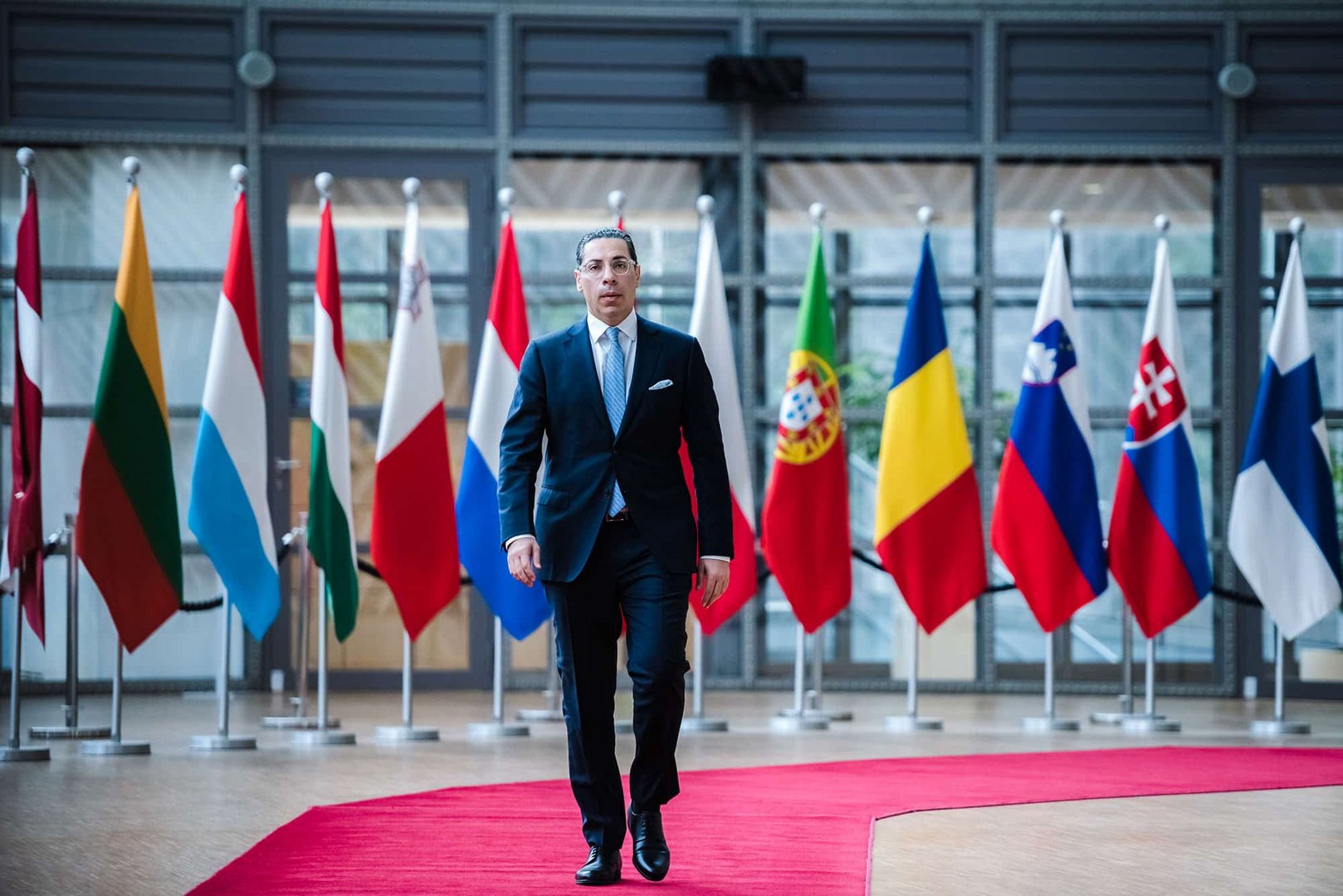Foreign Minister Constantinos Kombos on Monday called for a “unified approach” across the European Union to the ongoing crisis in the Middle East.
Speaking at the day’s EU foreign affairs council in Brussels, he said such a unified approach should stretch to efforts to restart a political process aimed at a solution in Israel and Palestine and dealing with the humanitarian crisis in Gaza.
Additionally, he informed his EU counterparts regarding the increase in the flow of humanitarian aid to Gaza being transferred via Cyprus under the Amalthea plan.
It emerged after the meeting that the EU’s 27 foreign ministers had “given the political green light” for Eubam (the EU Border Assistance Mission to Rafah), to be reactivated.
He said the mission “must be done in a coordinated manner with the Palestinian Authority, the Egyptians, and of course Israel.”
He clarified that the EU is “not going to offer border security services” as “we are not a security company”, but that a civilian unarmed mission will be deployed to monitor the situation in Rafah and liaise between the parties involved at the Rafah crossing point.
The move came after Israel attacked a tent camp in Rafah, killing 45 people who had already been internally displaced.
The atmosphere at the EU foreign affairs council was firmer in its stance towards Israel in light of the attack, with Irish Foreign Minister Micheal Martin saying after the meeting that the 27 had for the first time engaged in a “significant” discussion regarding sanctioning Israel.
“For the first time at an EU meeting, in a real way, I’ve seen significant discussion on sanctions and ‘what if’”, he said, while conceding that there is “some distance” between the various positions of the 27 foreign ministers.
However, he said there is “a lot of concern” regarding Israel’s seeming refusal thus far to comply with an International Court of Justice ruling, which ordered the state to halt its assault on the city.
“The EU has always upheld the independence of that court and the need for nations to comply with it,” he said, adding that the 27 foreign ministers expressed “very clear views that Israel should adhere to those provisional orders to open the border crossing with Rafah and cease its military operations in Rafah.”
“International humanitarian law, adherence to human rights, is the raison d’être of the European Union and events now are really putting that issue into sharp focus, particularly given the attack last night when so many innocent people were killed,” he said.
His words were echoed by those of Luxembourgeois Foreign Minister Xavier Bettel, who warned that if the EU does not back the ICJ’s orders on Rafah, it would be seen to be “a dog that barks but doesn’t bite”.
He added that his country will “certainly” recognise Palestine.
In addition to the Middle East, the 27 also discussed the ongoing Russian invasion of Ukraine, the developing situation in Georgia, and developments in Venezuela and Haiti.
Kombos reiterated Cyprus’ support for the “territiorial integrity and sovereignty of Ukraine” and the need to address the circumvention of sanctions.
The 27 foreign ministers also participated in a conference on the issue of Syria alongside the foreign ministers of Jordan, Iraq, and Lebanon.
Kombos expressed Cyprus’ position that the “only viable solution” to the ongoing conflict in Syria is the promotion of a “political process” in accordance with United Nations Security Council Resolution 2254, which called for a ceasefire in the country in 2015.
He also stressed the need for more humanitarian aid to flow into Syria and announced that the Cypriot government had pledged €100,000 to this end.






Click here to change your cookie preferences